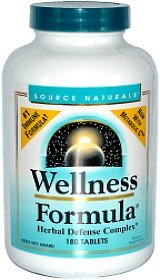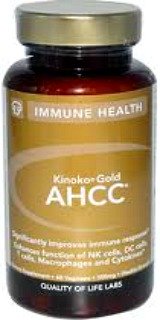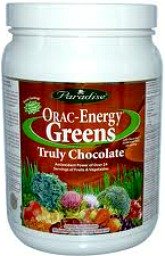The power of natural antibiotics
Natural antibiotics are nature's alternative to pharmaceutical drugs. While antibiotics such as amoxycillin, azithromycin and penicilin can lead to side effects, kill good bacterias in our intestines and create new generation of super bugs which can make the common flu deadly, herbal antibiotics work in completly other fashion.
The role of herbal antibiotics is to attack and destroy bacterias and viruses in the blood, without causing dangerous mutation and adaptations of these dangerous microorganisms. Although most of them aren't that effective in improving immune system function as some other herbs and supplements, few of them provide this type of benefit, too.
THE LIST OF NATURAL ANTIBIOTICS
Garlic is the most well known herbal antibiotic. People have used it through history to treat flu, cold and numerous other infectious diseases. It strength comes from alicin which is produced from raw, crushed garlic. However, it also has positive effect on immune system function, by encouraging the growth of good bacterias in the stomach.
Goldenseal is the second most well known natural antibiotic. It contains alkaloid berberine which is also found in Barberry, Oregon grape, Poppy, Coptis and few other herbs. Although scientist aren't yet completly sure about its mode of action, they assume it encourages the immune system response toward microbes and prevents their reproduction rather than attacking them directly.
Myrrh is mostly used for fighting the bad bacterias found in oral cavity because of which it has shown the be helpful for treating gum disease, bad breath and mouth ulcers. It can be used internally and externally as well as for improving blood flow which can be very helpful for people with heart disease. However, its use it not advised in people with kidney problems.
Neem is one of versatile natural antibiotics with anti-bacterial, anti-viral, anti-parasitic, anti-fungal and insecticidal properties, thanks to which it is used to treat many diseases. Its power comes from complex and diverse nutritional content. Although it attacks bacterias directly and encourages detoxification, it may also stimulate interferon excretion.
Colloidal silver is relativly safe for humans but toxic for bacteria, algae, and fungi because of which it has been used to treat infections, before antibiotics became available. However, it may cause certain side effects if used in high doses or for prolong amount of time such as blue or gray discoloration of the skin, headache, liver and kidney damage.
Tea Tree Oil is very powerful antiseptic which can only be used externally since it is toxic, when ingested. Its anti-microbal properties mainly comes from Terpinen-4-ol. However, it strong aroma, make it not the most smelling herb. On the other hand, its alleged ability to fight MRSA, herpes, chicken pox, shingles and super bugs make it highly valuable herbal antibiotic.
Manuka Honey is strongest and healthiest type of honey which bees make from tea tree or manuka. Unlike Tea Tree oil, Manuka honey is not toxic for humans, and it can be taken internally. Its strong antimicrobial properties come from methylglyoxal, a type of acid which is highly concentrated in manuka unlike in other honeys. The strength of the honey is labeled with MGO or UMF. MGO and UMF represents the amount of methylglyoxal in it. The higher the number, the better.
Propolis is one of natural antibiotics which doesn't gets too much attention, despite its numerous benefits and extremly rich phytonutrient content. It has anti-bacterial, anti-fungal and immune system stimulating properties. Although it is mostly used to treat gum disease, sore throat and other bacterial disease of the oral cavity, it can also be used to treat herpes, flu, strep throat, candida as well as to decrease the risk of cancer and dementia, thanks to flavonoids found in the propolis such as CAPE.
Wild Indigo is on of herbal antibiotics used to treat colds, flu, bronchitis and to boost immune system. Although it is used to fight bacterial infection, because of its great immune system improving properties, it works well with other antibiotics and immune system boosters.
Spices such as cayenne pepper, thyme, sage and clove are affordable and effective natural antibiotics. Phytochemicals found in these spices such as capsaicin, eugenol, thymol and beta-thujone posses anti-bacterial, anti-fungal and anti-viral properties. Sprinkle some of them on your food to improve the flavour of the food and neutralize dangerous bacterias which may be lurking in your body.
Oregano is also one of the spices but among all of them, it seems to be the most effective because of which it deserves its own place on this list. It contains 36 phytochemicals, among which carvacrol is the strongest one. Carvacrol inhibits further proliferation of several bacterias, attacks them directly and stimulates immune system.
Eucalyptus is used for oral, sinus and respiratory infections, ringworms as well as expectorant to loosen coughs, alleviate congestion and clear the nasal passages. It can be used internally and externally but only if diluted in water. However, if used in high amounts, for longer periods of time or undiluted, it can be toxic and cause side effects. Eucalyptus seems to be somewhat difficult to eliminate from the kidneys, on which people with kidney problems should pay special attention.
Peppermint works well with eucalyptus because of which these two natural antibiotics are frequently found in mouthwashes, chewing gums and toothpastes. On the other hand, thanks to compounds such as menthol, peppermint is mostly used for digestive problems since it can kill bad bacterias in the intestines and encourage the growth of good bacterias. Although it is safer than eucalyptus, you shouldn't overdo it. .
Olive leaf can kill bacterias directly as well as by stimulating immune system. It has anti-bacterial, anti-fungal and anti-viral properties which makes it useful for treatment of very large number of diseases, including cancer. Although it contains many unique and powerful phytochemicals, the strongest among them is oleuropein. Also, it seems to be very safe and non-toxic, even in very high doses as well as when taken for extended period of time, unlike pharmaceutical or even some natural antibiotics.
Salt may come as a surprise to some of you but ordinary iodized kitchen salt can kill bacterias very effectively. It is also one of the reason why swimming in the clear sea is so beneficial for our complexion and wound healing. However, you shouldn't use salt for cleaning the body from within since too much sodium can raise blood pressure and damage the kidneys. Instead, use it to treat skin infection and gum disease but be careful not to swallow all that salt, after it kills bacterias in your mouth.
CONCLUSION
While these antibiotics can fight bacterias, viruses and prevent infectious diseases of the heart muscle, some of them can also improve your cardiovascular system function and treat heart disease in a more direct fashion. I am talking about olive leaf, spices, wild indigo, propolis, garlic and myrrh which can help you in more ways than one.
Also, although some of these natural antibiotics are very potent, combining a couple of them together can improve their ability to kill bacterias and viruses. However, caution should be advised as well as doctor's supervision.
- Heart Healthy Diet: Simple Tips and Guidelines
- Learn everything you need to know about heart healthy diet and find the right one for you. Implement few simple tips for immediate benefits.
- Heart Healthy Foods: How to Get the Most from Them
- Heart healthy foods can improve cardiovascular system function. Foods good for the heart are bursting with vitamins, minerals and rejuvenating phytochemicals.
- Herbs for the Heart and Cardiovascular System
- You have heard for hawthorn and garlic but there are few other herbs for the heart which can help in treating heart disease, naturally.
- The Best Heart Health Supplements
- Besides fish oil, there are several heart health supplements which can be useful. This includes Coenzyme Q10, Salicin, vitamin D3 and few others.
- Heart Healthy Spices
- Although there are many heart healthy spices out there, each of them can help prevent and treat heart disease in its own way, thanks to different types of flavonoids in these heart spices.
- Stress and Heart Disease: How are They Connected
- Stress and heart disease are closely related. In order to decrease the risk of heart problems, we have to learn how to handle the stress and treat its consequences, if we are unable to avoid it.
- Cardio Exercises for the Heart and Cardiovascular System
- Cardio exercises are vital part of natural heart disease treatment. However, which kind of heart exercise you should preform, varies from person to person.
- Good vs Bad Cholesterol: How to Improve Cholesterol Values
- Good vs bad cholesterol conflict is somewhat misunderstood. There is no good or bad cholesterol but only high or unbalanced cholesterol.
- Good Fats vs Bad Fats: Nutritional Facts and Guidelines
- What is the real truth when it comes to good fats vs bad fats? How much dietary fats should you consume daily and what are the best food sources of healthy fats?
- High Blood Pressure Remedies
- High blood pressure remedies range from tips and lifestyle modification to herbs and supplements. However, the method that works for someone else, may not work for you.
- Normal Heart Rate: How is Regulated and Influential Factors
- Normal heart rate varies from person to person. Although, age affects resting heart rate, there are many other factors that can raise or decrease heart rate.
- How to Lose Fat: Overlooked Tips for Weight Loss
- How to lose fat is surely one of the most intriguing questions for so many people. However, the answer is very simple. Eat healthy foods, perform fat burning exercises and take care of your hormones.
- Hormones and Heart Disease Connection
- Don't neglect hormones and heart disease connection. If you want to treat or prevent heart disease you have to balance your hormones.
- Heart Disease and Immune System Connection
- Heart disease and immune system connection is often overlooked, while trying to improve cardiovascular system function. However, there are several things you can do to change this.
- Dental Health Heart Disease Connection: Facts and Tips
- Dental health heart disease connection is one of three overlooked factors, along with hormones and immune system. However, with smart and effective approach we can change this.
- Causes of Heart Disease
- There are many causes of heart disease and factors that can increase or decrease your risk for developing heart related problems. Check how to turn the tide in your favour.
- Symptoms of Heart Disease
- There are few main symptoms of heart disease. Find out which are they, how to recognize them as well as my personal experience with some of them.
- Diagnosis of Heart Disease
- Accurate diagnosis of heart disease is the first step toward recovery. You can't start with treatment before you know what kind of disease you have, obviously.
- Treatment for Heart Disease: Medications and Surgeries
- Standard treatment for heart disease consists of surgeries, medications and devices. Which one is right for you, depends on your condition.
- Heart Disease Blog
- This is a blog about natural remedies, personal stories, helpful herbs and supplements, workout program as well as other tips and facts which may help people faced with heart disease.
- Contact Me
- Ask questions and leave comments about this site here.
- About the Author of Heart Health Guide
- About the author of Heart-health-guide.com website.
- Heart Health Guide Sitemap
- This is sitemap of Heart Health Guide.com. If you want to get better overview of informations on this website, you can get it here.
Copyright © - Heart Health Guide - All Rights Reserved.



